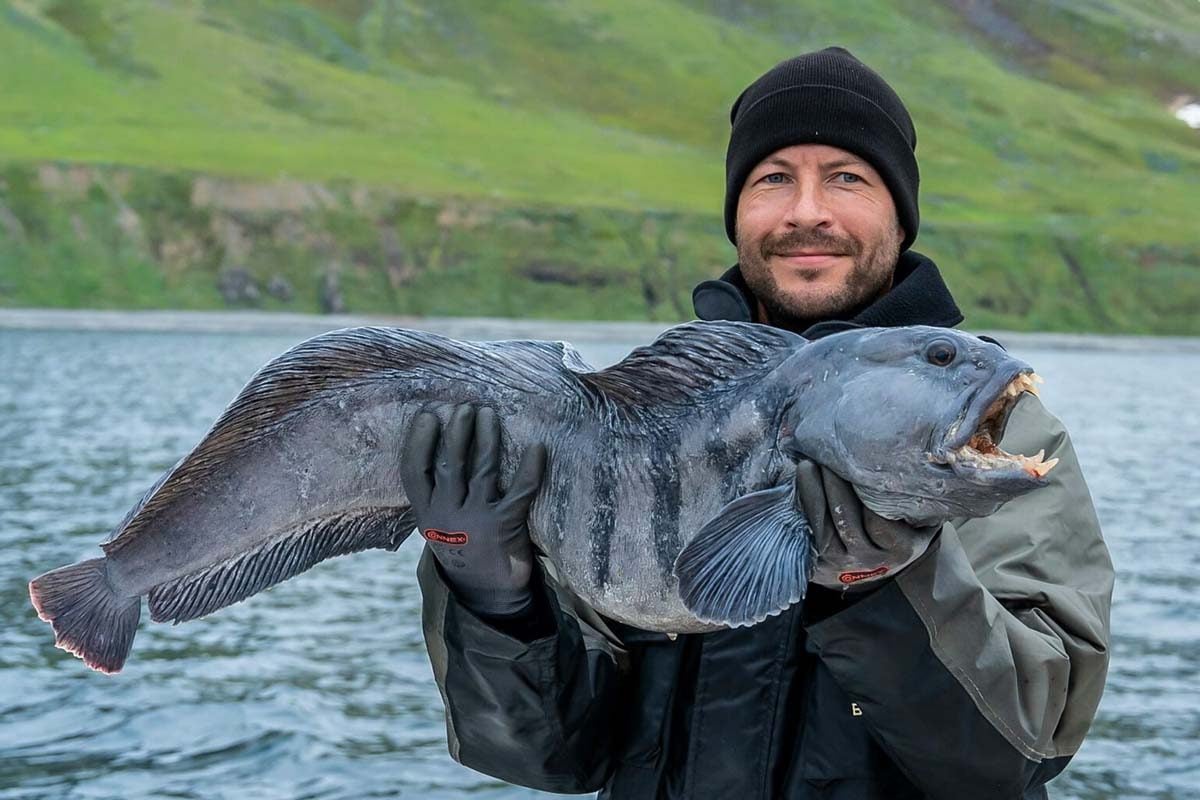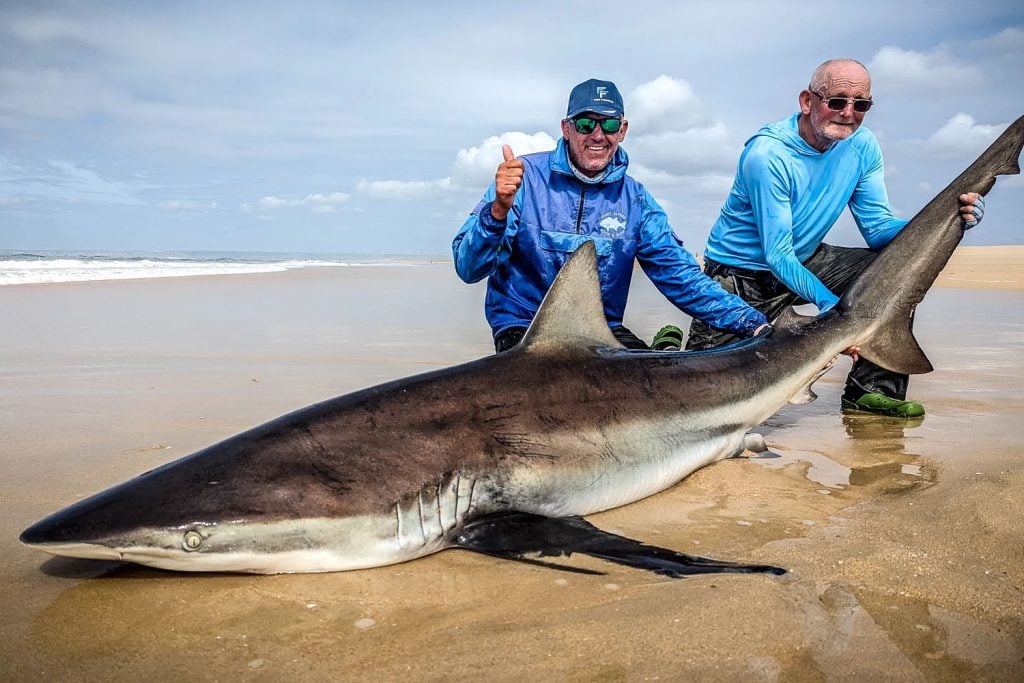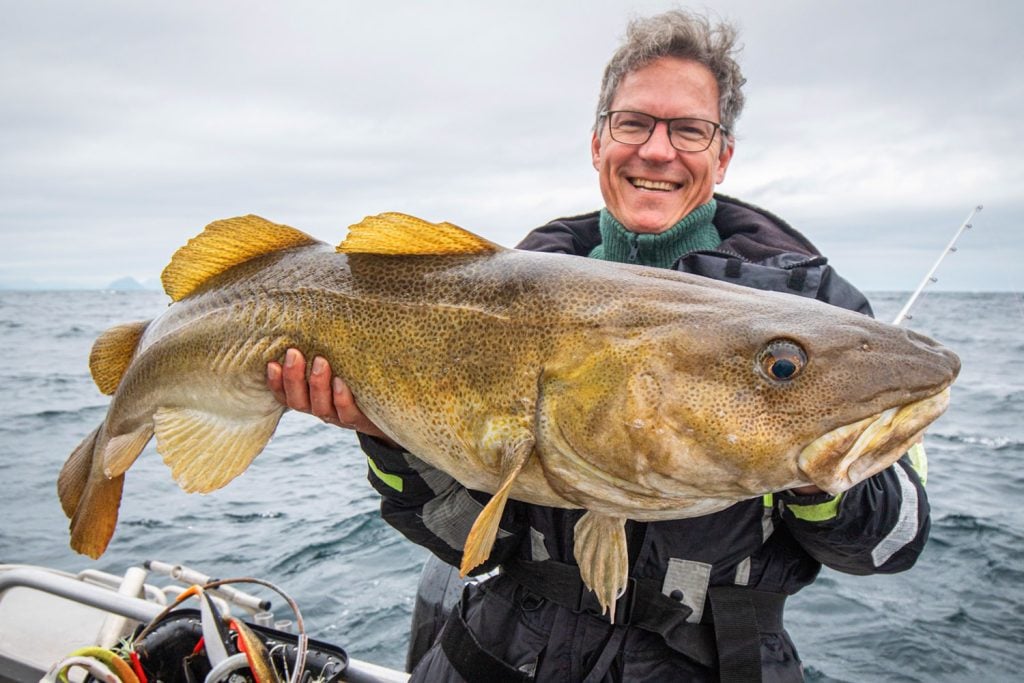Species: Atlantic Wolffish
Scientific Name: Anarhichas Lupus
Also known as: Seawolf, Atlantic Catfish, Ocean Catfish, Devil Fish or Wolf Eel.
Description
The Atlantic Wolffish has a general external appearance of a blennie, and its long eel-like body is smooth and slippery, with its scales almost hidden under its skin. It features an even dorsal fin that extends the whole length of its back and a similar fin from the vent to the caudal fin, its pectorals are large and rounded, and the pelvic fins are absent. They can vary heavily in colour, from a dull olive green or blueish grey to a purplish-brown colour. However, the main distinguishing feature from which they get their common name is their extensive teeth structure. Its lower and upper jaws contain four to six fang-like, strong, conical teeth used to crush crustaceans and other food items, and its throat is also littered with serrated dentature.
Maturing relatively late, at age six, the fish’s reproduction is unique. Unlike other fish, the female’s eggs are internally fertilized, with the male staying with the nest and protecting the eggs for as long as four months until the brood is strong enough to gain independence.
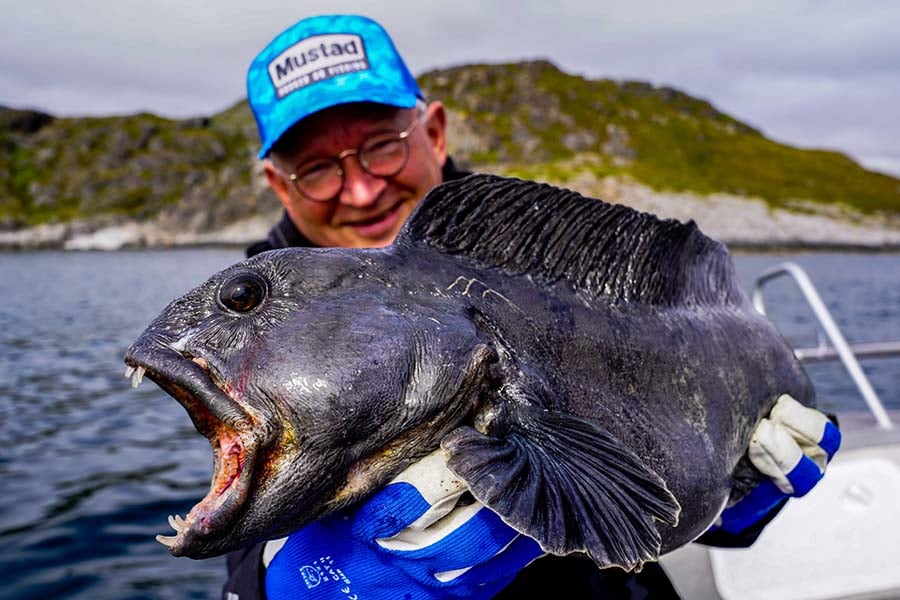

Where To Catch Wolffish
Wolffish are native to the North Atlantic Ocean and inhabit the east and west coasts. They populate the shores of Greenland, Newfoundland and Nova Scotia in the west Atlantic and throughout the Nordic countries to the east, with the likes of Norway and even lesser known areas such as Sudureyri or Flateyri in Iceland are home to some of the largest populations.
They are primarily stationary fish, living hard on the ocean floor and rarely moving from their rocky homes; they prefer to inhabit rock formations and caves, usually living alone and only venturing to find food. Despite their somewhat intimidating appearance, they are generally considered shy and reclusive. They like deep, cold water and live in depths from 20m to 500m in temperatures between −1 to 11 °C, and remarkably they have a natural antifreeze that they produce to keep their blood moving fluidly in their icy habitat.
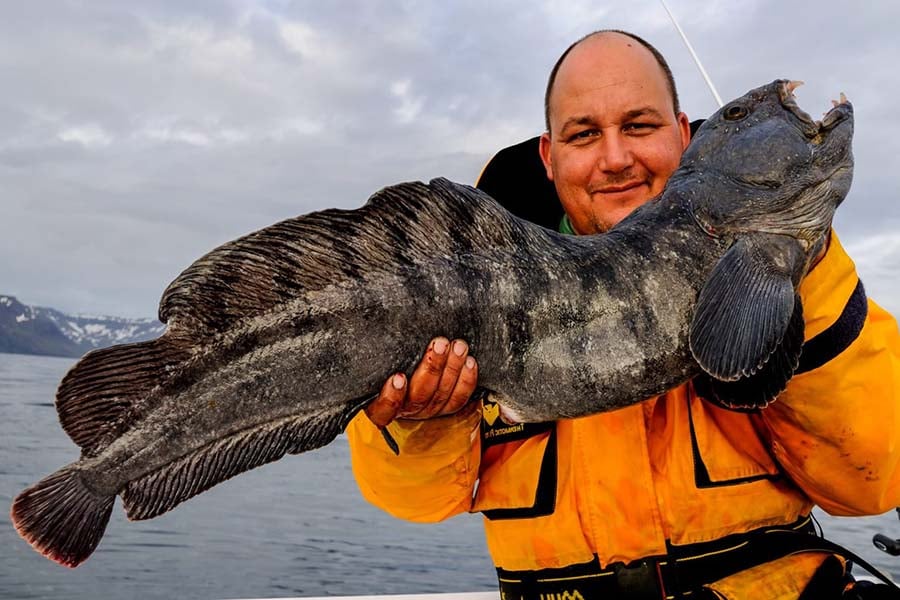

Average Size Of Wolffish
Wolffish don’t grow to epic proportions, and fish between 3lb to 10lb are average at our lodges like Big Fish Adventures in Soroya; however, larger specimens get landed every season. One of the biggest Wolffish ever caught was landed by Belgian angler Hendrickse Roland, fishing from Western Finnmark. It weighed in at a colossal 50.26lbs (22.8 kg) and measured over 1.5m in length.
How To Catch Wolffish
Although not usually a species that sea fishing anglers travel to target alone, they’re a welcome change to the larger species like Cod and Halibut and a superb species to catch on balanced tackle. Whenever anyone catches a Wolffish, other anglers usually gather around to catch a glimpse of this prehistoric monster of the deep.
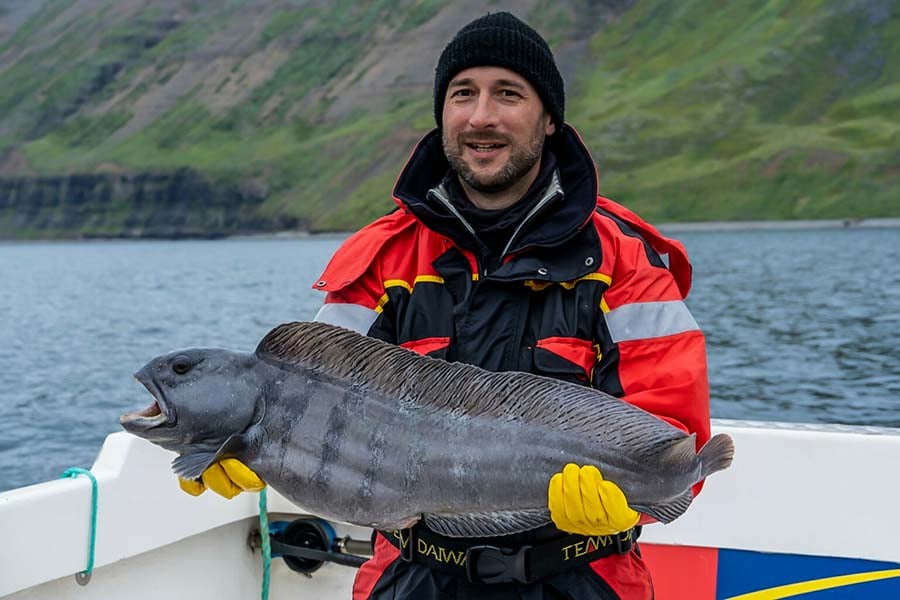

Predominantly a bottom feeder, they use their strong jaws to crush and eat large whelks, crabs, sea urchins, clams and starfish. It’s a little-known fact they are an essential factor in controlling Green Crab and Sea Urchin populations, which can become disruptive if left unchecked.
Whilst they are not known for eating other fish, anglers wishing to catch a Wolffish can often be rewarded by baiting the hooks of a silver pirk with a good chunk or fillet of fresh fish and bouncing this along the bottom. Wolffish won’t really actively hunt or seek out anglers’ baits, and it’s more often the case of an angler stumbling across one whilst fishing on the drift, especially over rocky or broken ground.
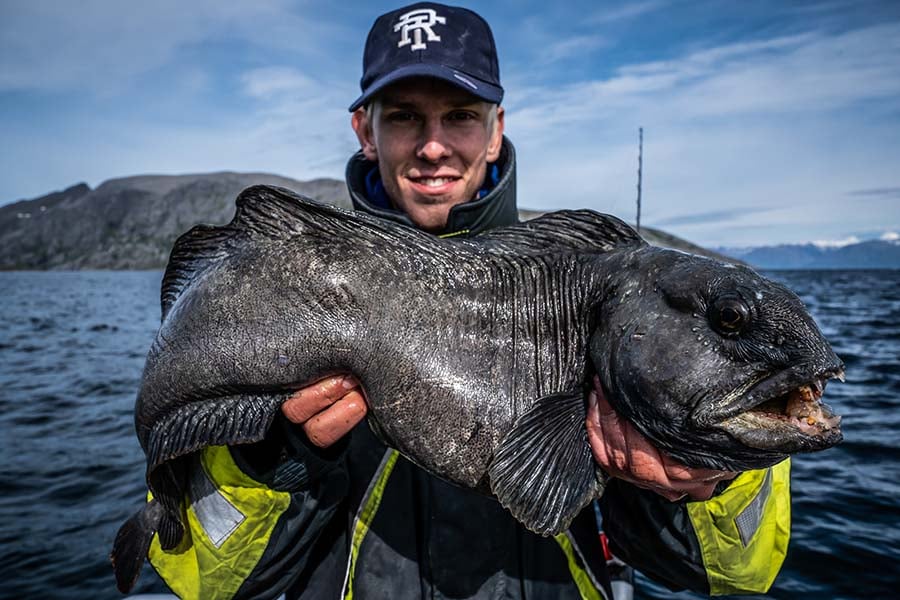

Contact US
If a Wolffish has always been a species on your bucket list, then we can help you tick it off. Our destinations in Norway & Iceland are considered some of the best in the world, with some incredible fishing opportunities. If you’d like to learn more or enquire about a trip, contact Paul Stevens on 01603 407596 or via email at paul@sportquestholidays.com.
